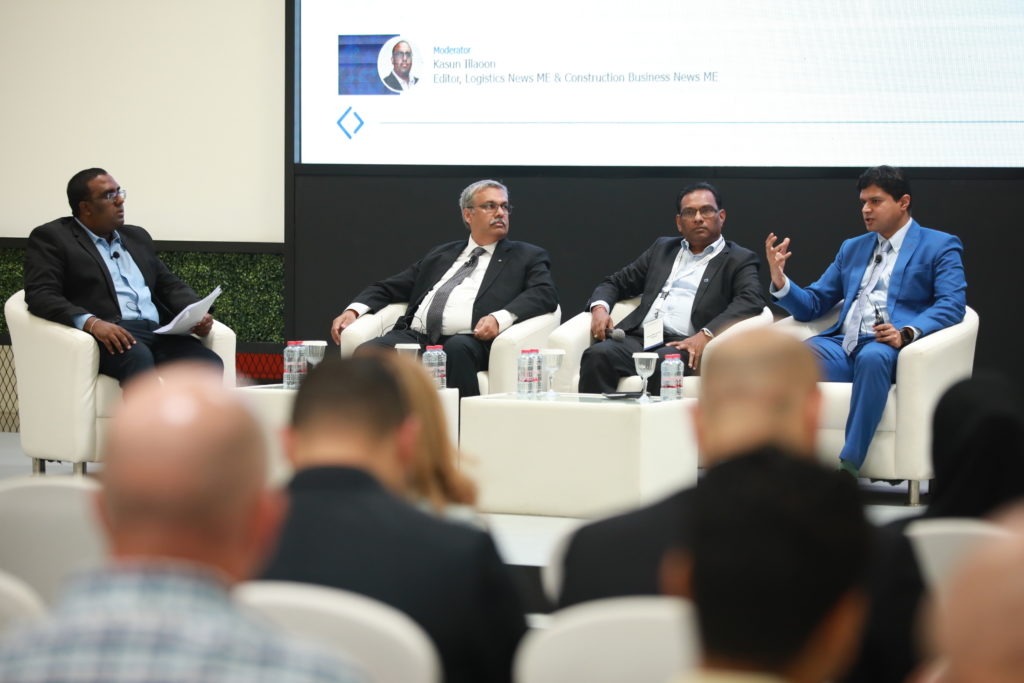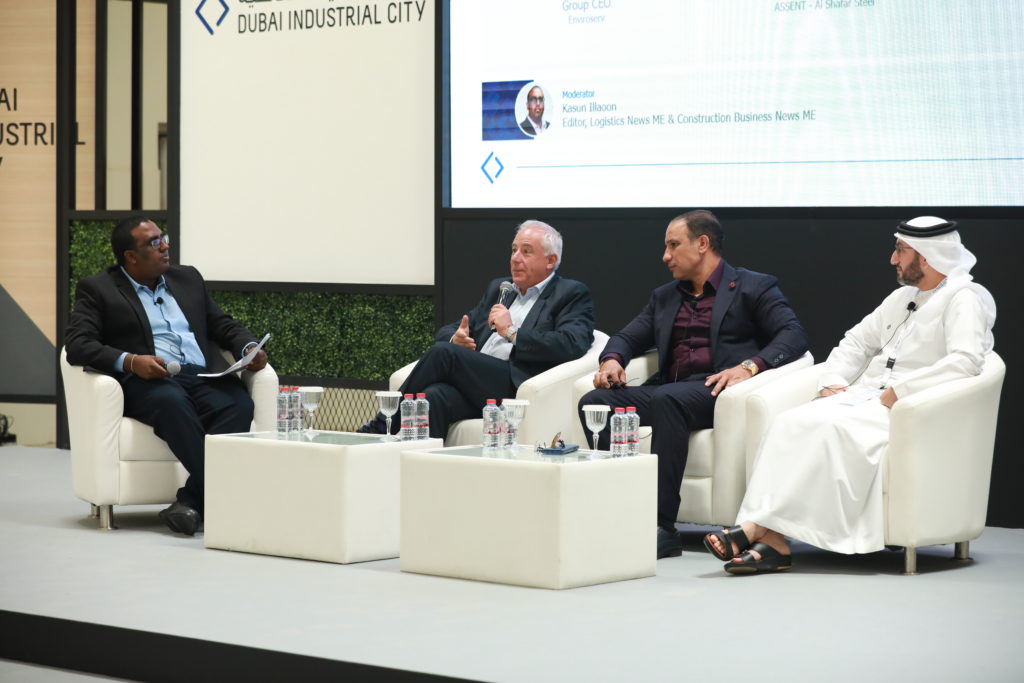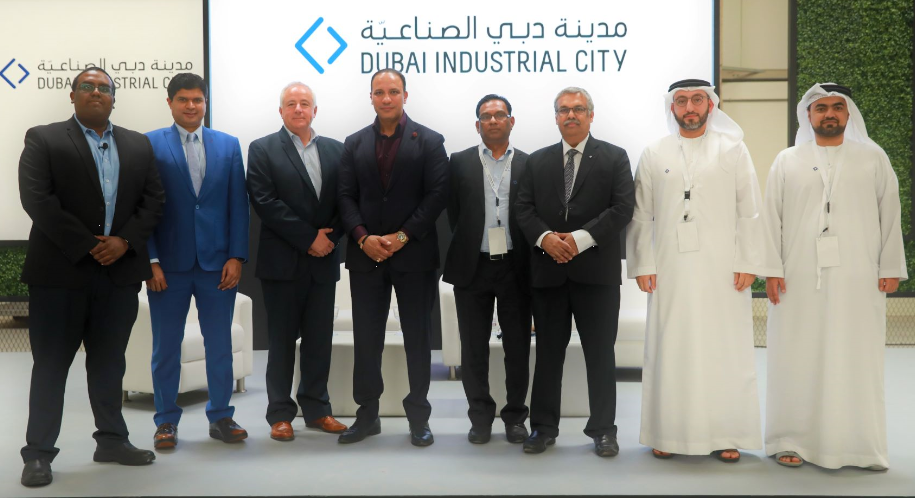Organisations that adopt smart solutions in their manufacturing and logistics processes achieve measurable benefits and efficiency in their operations, concluded industry decision makers and logistics professionals at the second edition of DI Talks, a series of expert-led discussions hosted by Dubai Industrial City, one of the largest industrial hubs in Dubai and a part of TECOM Group.
Held under the theme ‘Manufacturing and Logistics’, the gathering drew the participation of leading industry experts and decision makers in the UAE who shared case studies that adopted and implemented emerging technologies for effective supply chain management. Through the initiative, Dubai Industrial City aims to provide a platform for professionals in the industry to connect and exchange knowledge and expertise on key trends. This is also in line with the objectives of the Dubai Industrial Strategy 2030, of which Dubai Industrial City has been a main partner in its development and implementation since its launch in 2016.
In his welcome speech, Saud Abu Al-Shawareb, Managing Director of Dubai Industrial City, said: “As we continue to develop an advanced industrial sector in the UAE and proudly support the ‘Made in UAE’ culture, it is imperative that we focus on collaboration, innovation and sustainability. This knowledge sharing platform allows our community of over 730 business partners to learn from one another.”
He added: “As the dedicated manufacturing and logistics hub in Dubai, and as a partner in the Dubai Industrial Strategy 2030, our vision is aligned with that of the wise UAE leadership. We aim to elevate Dubai’s position as the leading innovative and sustainable logistics and manufacturing hub in the region.”
Exploring various aspects of manufacturing and logistics in the era of the Fourth Industrial Revolution, the agenda featured two sessions moderated by Kasun Illankoon, Editor of Logistics News ME and Construction Business News ME. Panelists in the first discussion, titled ‘Market Insight: The Rapid Transformation and Growth of the Logistics Sector’ included Nirman Shetty, Chief Operating Officer of NMC Trading, and Raman Kumar, Managing Director of Al-Futtaim Logistics.

Nirman Shetty said: “Despite the prevailing market perception that customer needs have undergone radical change over the past years, I believe what has truly changed are the expectations of customers about the speed of response and implementation of their requirements against the background of the rapid development of technology that created efficiency in operations.”
He added: “We consider modern technology integral to shaping the features of the new era of logistics. In terms of our work, we have noticed the importance of digital transformation and the use of technology in facilitating coordination among production units in large enterprises in order to control processes and reduce levels of human error. It also helps to leverage data to better anticipate market demand across different regions.”
For his part, Raman Kumar said: “Over the last 20 years, the logistics sector has witnessed a great leap, especially in the face of global economic developments, such as China’s Belt and Road initiative, the incorporation of technology in all aspects of work and the rapid evolution of customer needs, which require comprehensive studies and analysis to develop products that meet them. With the arrival of e-commerce, the need for modern, sophisticated and flexible logistics services have emerged. In light of these changes, we believe that the sector offers opportunities to develop and adopt innovation.”
Kumar noted that the automation of operations and the introduction of other technologies into manufacturing and logistics are significantly enhancing productivity and efficiency. However, he finds it necessary to first examine the needs of customers in each sector and provide them with logistics services tailored to the nature of their work and the needs of their target audiences.
He also pointed out that opportunities to develop the manufacturing and logistics fields are present at the local level, especially in view of the government’s support driving the contribution of the sectors to the non-oil GDP.
The second panel discussion focused on ‘The Smart Industry: The Road to the Intelligent and Automated Factories and Warehouses of the Future’ was also moderated by Illankoon who was joined by Stuart Fleming, CEO of EnviroServe UAE, Amr Ali, Managing Partner of Al Shafar Steel Engineering (ASSENT), and Dubai Industrial City’s Managing Director Saud Abu Al-Shawareb.

The panellists agreed that adopting emerging technology not only justifies a bigger initial investment, but it is key for the survival of a business. In this context, Amr Ali stressed the impact of early technology adoption, especially manufacturing automation, on the long-term cost-efficiency and the ability to compete and thrive.
Stuart Fleming pointed out that the feasibility of automation and the adoption of emerging technologies in the manufacturing and logistics processes can no longer be disputed. The global trend today focuses on accelerating the production cycle using various technological means, and those who fail to catch up are judged by their organisation’s long-term loss. In closing, he noted that in addition to significant environmental benefits, sustainable operations help enhance productivity and increase profits on the long-term.
Dubai Industrial City launched DI Talks during its participation in Gulfood 2019 as a platform for its business partners and industry leaders to share their knowledge and expertise and discuss the latest trends with the aim of enhancing the knowledge base with a specific focus on F&B manufacturing and food security.
Dubai Industrial City provides state-of-the-art infrastructure and facilities for manufacturers and traders as well as integrated services and solutions that support business expansion and development at the local and regional levels. With more than 730 business partners and over 270 factories, the community is home to prominent industry players, such as Unilever, Patchi, BASF, Al Shirawi Group, LuLu Group International, Barakat, Almarai Group, Al-Futtaim Logistics, EnviroServe UAE and NMC Trading.




